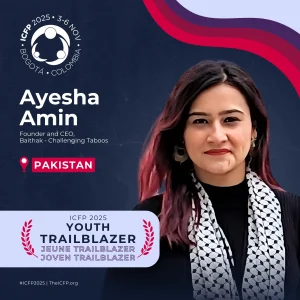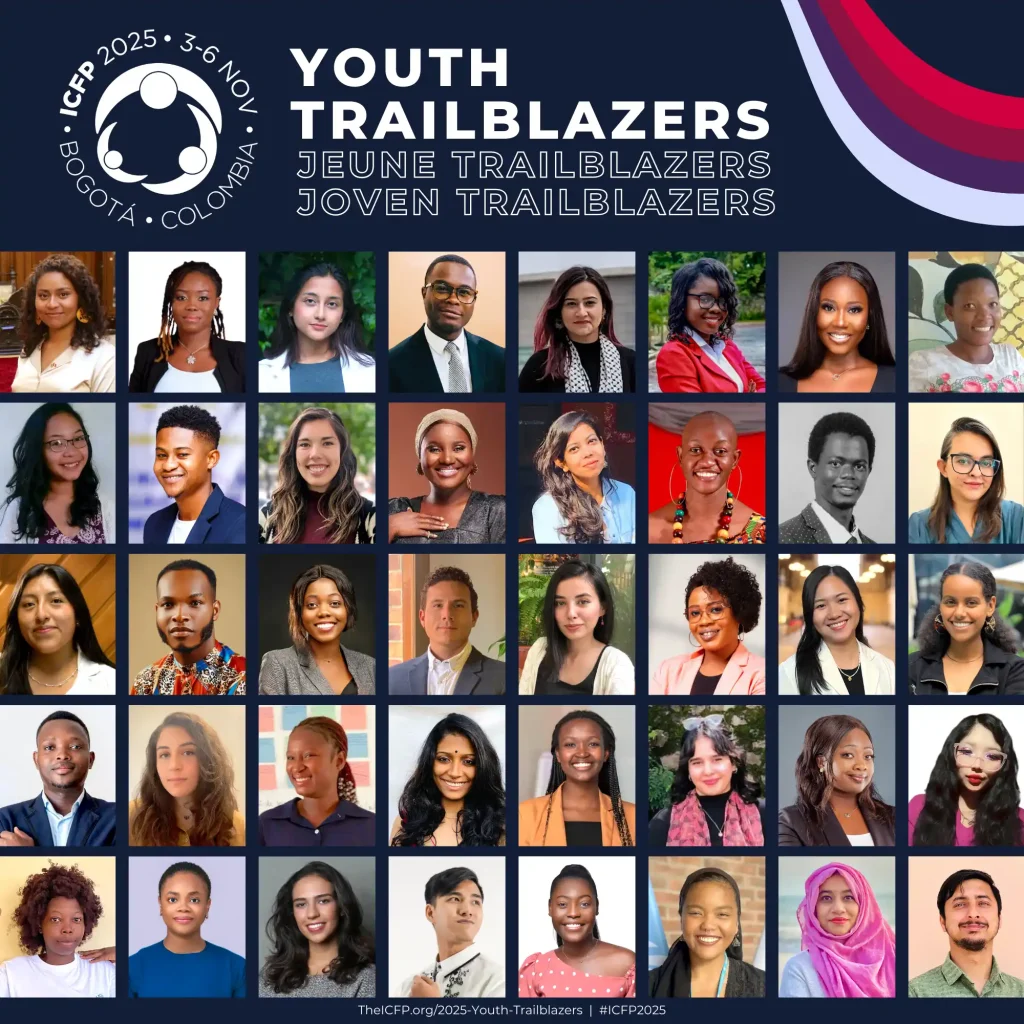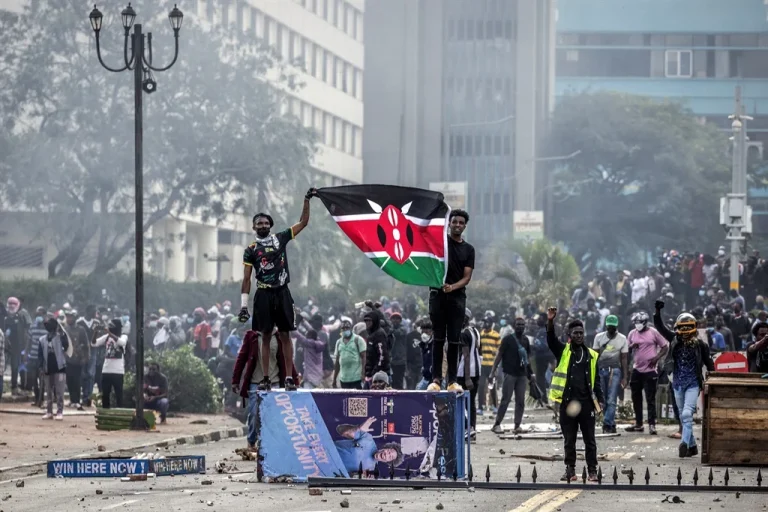The ICFP Secretariat and Youth Subcommittee have officially revealed the 40 remarkable recipients of the ICFP 2025 Youth Trailblazer Award. These young leaders, selected from over 550 global applicants, have been recognized for their innovative contributions to global family planning (FP) and sexual and reproductive health and rights (SRHR). Their expertise spans critical areas such as advocacy, climate justice, healthcare, gender equity, and inclusion, highlighting their dedication to making a lasting impact on global health.
Notable Winners Include:
- Afi Delali Dorcas ESSILIVI (Togo)
- Anslyne Arthur (Haiti)
- Ayesha Amin (Pakistan)
- Bisrat Dessalegn (Ethiopia)
- Daniel Prieto (Colombia)
- Devyani Chaturvedi (India)
- Gisela Foz (Brazil)
- Mwinyihija Juma Jokolo (Tanzania)
- Neira Budiono (Indonesia)
- Valentina Wiñay Wara Quispe Isnado (Bolivia).
These leaders will play a pivotal role in shaping the upcoming International Conference on Family Planning (ICFP), taking place from November 3-6, 2025, in Bogotá, Colombia. As part of their award, they will join the ICFP International Steering Committee (ISC) subcommittee, contributing to the planning and implementation of the event, and leading discussions on youth perspectives in SRHR.
Ayesha Amin’s Story: Elevating Women’s Voices in Climate Response

Among the 2025 Youth Trailblazers, Ayesha Amin from Pakistan stands out for her commitment to addressing the intersection of climate change and reproductive health. Reflecting on the devastating 2022 floods in Pakistan, Amin shared her experience working in the hardest-hit areas. “In 2022, Pakistan was hit by the worst climate crisis in the country’s history. Girls and women from marginalized grassroots communities, who I’ve been working with for over a decade, were amongst the worst affected during these floods.”
Ayesha spent over six months in flood-affected areas, distributing contraceptives, menstrual kits, safety kits, and negotiating with local governments to prioritize the reproductive and family planning needs of girls and women. She recounted the severe toll the floods took on reproductive health services: “There were 8 million girls and women of reproductive age who were affected during these floods, who had to bear the brunt of unintended pregnancies due to disruption of family planning services. There were also 650,000 pregnant women displaced, many of whom miscarried or had to give birth under open skies due to the lack of prenatal care.”
The floods also increased the risks of gender-based violence and child marriages in camps and affected areas, further exacerbating the challenges faced by women and girls in accessing family planning services. Amin highlighted the stagnation of Pakistan’s contraceptive prevalence rate at 35% since 2008, a figure that worsened due to the floods.
To address these gaps, Ayesha co-created the Gender Inclusive Climate Action (JICA) Toolkit through consultations with 5,000 climate refugees and 40 grassroots organizations. This globally recognized toolkit provides governments with guidelines on making climate crisis responses gender-inclusive. “Climate change is not gender-neutral, but unfortunately, the climate crisis response, not only in Pakistan but in most countries, is gender-blind,” Ayesha emphasized. “At ICFP 2025, we must collectively demand that girls and women from marginalized communities lead the dialogues at decision-making tables, free from mansplaining.”
Global Impact and Leadership
The 40 ICFP 2025 Youth Trailblazers hail from 28 countries, representing diverse linguistic backgrounds and areas of expertise, including menstrual health, research, social behavior change, and indigenous rights. Their efforts will help drive impactful discussions at ICFP 2025 and beyond, making a significant contribution to the future of SRHR globally.
The ICFP 2025 Youth Trailblazer Award shines a spotlight on these future leaders as they work to create a more inclusive and equitable global health landscape. Stay tuned for more updates on their journey leading up to and during ICFP 2025.





